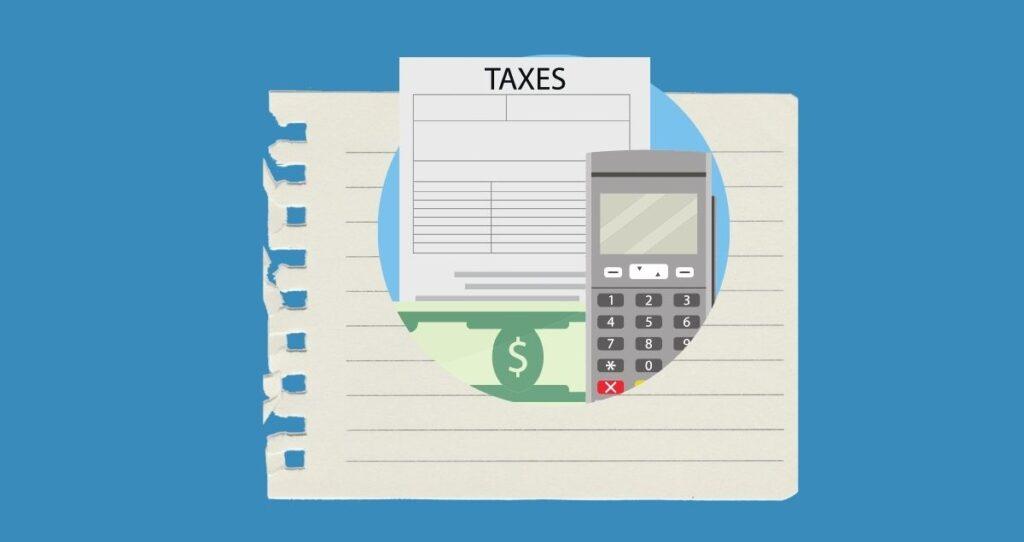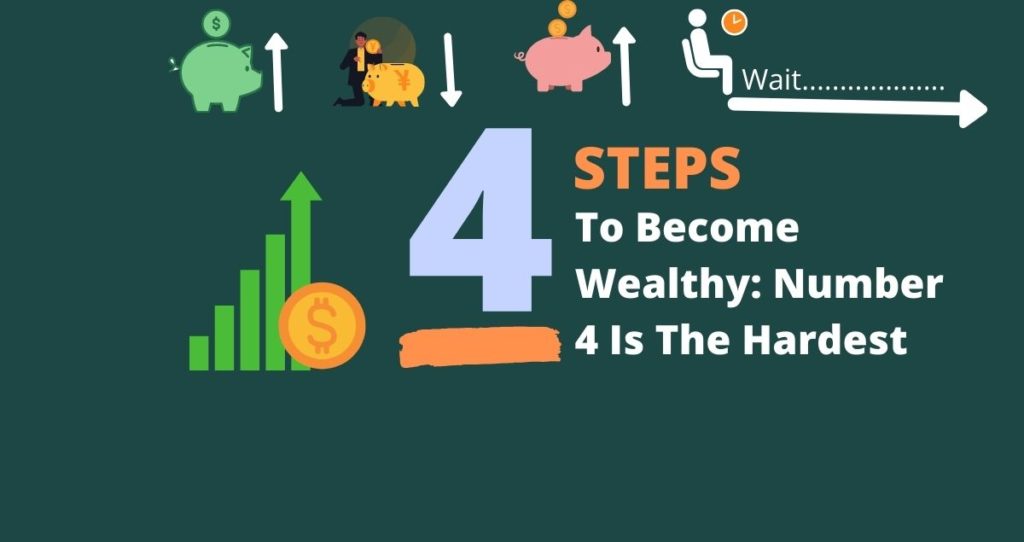Are you tired of seeing a large portion of your investment profits being swallowed up by the IRS? Capital gains tax can be a major deterrent when it comes to investing but it doesn’t have to be. In this comprehensive guide, you will learn about 8 effective strategies to avoid capital gains tax on your investments. Whether you want to avoid capital gains tax on stocks, bonds, ETFs, Mutual Funds, and related securities, or minimize, defer, or avoid capital gains tax on real estate sales, you have come to the right place.
From harvesting your losses by selling underperforming assets and investing in tax-efficient investment vehicles to investing in Opportunity Zones and increasing contributions to tax-deferred retirement plans such as 401(k)s and IRAs, this article has all the strategies you need to avoid paying capital gains taxes. I will also walk you through different types of capital gains, how capital gains taxes work, how to report capital gains on your tax returns, and when you must report your gains to IRS.
If you want to save thousands of dollars in capital gains and retain most of your hard-earned money, keep reading.
What is capital gain?
Capital gain is the profit you make from selling an asset that increased in value after holding it for a period of time. For example, if you purchased 10,000 shares of stock in 2020 for $30,000 and sold them for $50,000 in 2023, you will have earned $20,000 in capital gain.
Another term that goes with a capital gain is the capital loss which is the opposite of capital gain. If for example, you sold all your shares for $6,000, then, you would have a capital loss of $4,000.
To truly avoid capital gains tax, It is important to understand the difference between short-term and long-term capital gains. A short-term capital gain comes from a sale of an asset held for one year or less. For long-term capital gains, on the other hand, an asset must be held for more than one year.
You might also like: How To Buy Dividend Stocks: Dividend Investing Guide
What is capital gain tax?
Capital gains tax is the tax imposed on capital gains, or profits, that are realized from the sale of a non-inventory asset that was purchased at a lower price. Common assets that you can sell for capital gains include but are not limited to bonds, real estate, precious metals such as gold and silver, stocks, and other assets that hold value.
The tax is typically levied on the difference between the selling price and the purchase price of the asset. From the example above, you must report that $20,000 in capital gain on your tax return for 2023 since your transaction would have been made in 2023.
If you have an asset where third-party costs such as commissions, title search, etc, are involved, these costs will be considered when calculating your capital gains. This is done by calculating what is known as an adjusted basis. An adjusted basis is nothing other than what it cost you to buy the asset plus commission, title search, related fees, and additional improvements to the property.
How do taxes on capital gains work?
Taxes on capital gains involve taxes placed on the profit made from selling an investment in assets such as stocks, bonds, real estate, or artwork. When an investment is sold for a higher amount than what was originally paid for it, the profits are subject to capital gains taxes. The tax rate depends on the asset being sold and the time period that the asset was held.
Different countries or jurisdictions determine their own capital gains tax rates. Generally, the rate is lower for investments that are held for a long period of time compared to shorter-term investments. For example, in the United States, long-term capital gains tax rates are typically lower than short-term capital gains tax rates.
Capital gains taxes are also treated differently depending on whether it is an individual or a corporation. For individuals, it is typically taxed in a similar manner as income from an occupation or labor. But tax rates might be lower based on how long you held the asset. For corporations, capital gains taxes are usually treated as a separate and distinct tax. There may be special tax exemptions or deductions for capital gains to encourage investment.
In addition, the taxation of capital gains can also be affected by inflation. For example, if an asset was originally purchased for $200 and then sold for $300, the realized capital gain is considered to be $100. However, if inflation has occurred, the original purchase price of $200 may have less real value due to inflation. In this case, the taxable capital gain is adjusted to account for the impact of inflation.
What are the capital gains tax rates?
Capital gain rates are usually affected by how long you held an asset and your individual income. To be a qualified long-term capital gain, an asset must be held for more than 1 year. Under these conditions, your capital gains tax rates will be either 0%, 15%, or 20%. But, if you end up selling your asset before holding it for one year, then the capital gains you earned will be considered ordinary income. In this case, ordinary federal income tax will apply. That is the income tax you pay on these gains will follow ordinary federal income tax brackets.
Assuming your gains are qualified capital gains, you will be taxed as follow based on your income, according to the Internal Revenue Service (IRS).
| Filing status | 0% tax rate | 15% tax rate | 20% tax rate |
| Single | $0 ≤ $41,675 | >$41,675 ≤ $459,750 | Over $459,750 |
| Head of household | 0 ≤ $55,800 | >$55,800 ≤ $488,500 | Over $488,500 |
| Married filing jointly | $0 ≤ $83,350 | >$83,350 ≤ $517,200 | Over $517,200 |
| Married filing separate | $0 ≤ $41,675 | >$41,675 ≤ $258,600 | Over $258,600 |
| Qualifying surviving spouse | $0 ≤ $83,350 | >$83,350 ≤ $517,200 | Over $517,200 |
8 ways to avoid capital gains tax on your investments
The following is a complete guide of strategies you can start implementing today to minimize your capital gains tax liabilities or avoid them altogether.
1. Sell underperforming assets
One of the most effective ways to avoid capital gains tax is by selling off underperforming assets. This involves identifying investments that have not performed as expected and selling them for a loss. This strategy is also known as the Tax-Loss Harvesting strategy. While it may seem counterintuitive to sell off assets that are losing value, this strategy can be beneficial in the long run. By selling off underperforming assets, you can offset the gains from other investments which helps you reduce your overall tax bill.
Of course, it’s important to carefully evaluate your investment portfolio and ensure that any losses you harvest align with your overall investment goals and risk tolerance.
The internal revenue service(IRS) allows you to deduct up to $3,000 in capital losses that exceed your gains and carry the remaining loss to the following years.
2. Use tax-efficient investment vehicles
Using tax-efficient investment vehicles is another effective way to avoid capital gains tax. The following is one of many tax-efficient investments to help you avoid paying tax on capital gains.
A good example of tax-efficient investment vehicles to avoid capital gains tax is municipal bonds. If you did not know it, you can avoid paying capital gains tax by purchasing tax-free municipal bonds. The interest earned on these bonds is exempt from federal taxes, and sometimes state and local taxes as well. This can be a great option for those in higher tax brackets looking to earn tax-free income.
Why would you pay no taxes on municipal bonds? Because the government needs money to complete public infrastructure such as roads, hospitals, bridges, schools, etc. To get the money your local government needs from the public, tax incentives are used to encourage people to purchase these bonds. Municipal bond yields vary by state and maturity dates. According to Bloomberg, you should expect your investments to yield between 2.36% to 3.47% depending on the bonds you have. For example, a Muni Bonds 30 Year Yields 3.47% whereas Muni Bonds 2 Year yields 2.70% on average.
3. Invest in Qualified Opportunity Zones
Investing in Qualified Opportunity Zones is a relatively new approach to reducing your capital gains tax liability. These designated zones are economically distressed areas where the government provides tax incentives to encourage investment and revitalization. By investing in qualified Opportunity Funds, which are investment vehicles that invest in Opportunity Zones, you can defer paying taxes on your gains until 2026 or when you sell your investment, whichever comes first, according to the Internal Revenue Service (IRS). In addition, if you hold the investment for at least 10 years, you can eliminate the capital gains tax altogether.
While investing in Qualified Opportunity Zones can be an effective way to avoid paying capital gains tax, you still have to do your homework to avoid major losses. In other words, it is important to do your due diligence and carefully evaluate the investment opportunities presented by your Opportunity Funds. Not all funds may align with your investment goals or risk tolerance.
4. Contribute to your tax-deferred retirement accounts
Maximizing your retirement savings is one of the best ways to reduce your tax liability while simultaneously investing for your future. By contributing to tax-advantaged accounts such as 401(k)s or individual retirement accounts (IRAs), you can potentially lower your tax bill now and limit capital gains taxes in the future. These accounts also offer the potential for compound interest and tax-deferred growth, allowing your savings to grow faster than they would in a standard savings account.
If you have a workplace retirement plan like a 401(k), consider contributing the maximum amount allowed each year. For 2023, the contribution limit to the 401(k) plan is $22,500, with an additional catch-up contribution of $7,500 available for those over 50. In addition to your own contribution to the plan, your employer might also match your contributions up to a certain percentage which is free money in your pocket.
If you don’t have access to a workplace plan, contributing to a traditional IRA or Roth IRA may be a good option. Traditional IRAs allow you to deduct your contributions from your taxable income, whereas Roth IRAs are funded with after-tax dollars but offer tax-free withdrawals in retirement.
If you are self-employed, there are also options to save for retirement to minimize your taxable income. Follow this guide to save for retirement when self-employed.
By contributing to your retirement accounts, you not only reduce your taxable income now but also set yourself up for long-term financial success.
You might also like: 10 effective ways to boost retirement savings
5. Move to a tax-friendly state
If you want to take your tax-saving strategy a step further, moving to a tax-friendly state may be a wise decision. Depending on where you currently reside, it is possible that you’re paying state taxes that you could avoid by relocating. Additionally, some states have more favorable tax laws for retirees or for those earning passive income.
Before you pack your bags, though, it’s important to do your research. Make sure you understand the tax laws in both your current state and any state you are considering moving to. Consider factors such as property taxes, sales taxes, and state income taxes.
If you are flexible with where you live, it may be worth considering a move to a state that has no income tax. These states include Alaska, Florida, Nevada, South Dakota, Tennessee, Texas, Washington, and Wyoming. Even if you’re not quite ready to make a permanent move, spending a few months of the year in a tax-friendly state could still provide significant tax savings.
6. Gift securities to charities
Another smart way to potentially lower your tax bill and support a good cause at the same time is by gifting securities to charities. Rather than selling appreciated assets and being subjected to capital gains taxes, you can donate them directly to a qualified charity. This strategy not only allows you to avoid paying capital gains taxes but also provides you with a tax deduction for the full fair-market value of the securities.
7. Invest for the long term to minimize your realized income
Investing for the long term is an effective way to minimize your realized income and avoid paying capital gains tax. When you hold onto investments for an extended period, you reduce the likelihood of realizing a gain, and therefore, minimize your overall taxable income.
By investing in stocks, mutual funds, Exchange Traded Funds(ETFs), and Index Funds that pay dividends or interest, you can also take advantage of the lower long-term capital gains tax rates. This means that if you hold onto your investment for more than a year, you will be taxed at a lower tax rate when you eventually sell it. You will also benefit from security growth which is another benefit of long-term investing strategies.
However, it is important to note that investing for the long term requires patience and a willingness to weather market fluctuations. It is also crucial to conduct thorough research and choose investments that align with your financial goals and risk tolerance.
8. Avoid paying capital gains tax after selling a home
Selling a home usually comes with a huge tax liability. But, if you use your home as your primary residence for quite some time, you might avoid paying capital gains tax up to a certain amount.
If you owned a home and used it as your primary residence for at least 2 years out of the 5 years prior to selling it, you can deduct up to $250,000 in capital gains when filing single and up to $500,000 when filing jointly after the sale of your house, according to IRS. These two years do not have to be consecutive. However, the aggregated time you use the home as your primary residence must be 2 years minimum.
The 5 years test can be extended for up to 10 years if you or your spouse are on qualified official Uniformed Services, according to IRS. That is instead of having to use your home as your primary home for 2 years during the 5 years prior to selling it, this test can be moved to 10 years. You will qualify for this extension if you spend more than 90 days at a station located at least 50 miles away from your home or if you spent that time in government housing under government orders.
Other tax-saving tips to avoid paying taxes on capital gains
In addition to the 9 strategies to avoid paying capital gains tax we just covered, there are other strategies you can rely on to increase your tax savings. These tax strategies are detailed in the following few sections.
- Delay your retirement age. One of the most effective ways to avoid paying capital gains tax is to delay your retirement age. When you retire early, you start taking distributions from your retirement accounts. Most retirement saving accounts allow you to start taking distributions after turning 59 1/2 without a 10% early withdrawal penalty. But, if your retirement savings are tax-deferred, you will start paying taxes on your distributions. What you can do is keep working and delay your retirement age until you are forced to start taking Required Minimum Distributions(RMDs) or after you retire.
- Sell your assets after you have retired. Do not sell your assets until after you have officially retired. This is because after retiring, the tax you pay on your proceeds will be much lower due to having a lower retirement income.
- Respect the Wash-Sale Rule. The Wash-Sale Rule says that if an investment is sold at a loss and repurchased in a period of 30 days, the initial loss cannot be claimed for tax purposes, according to Investopedia. So, make sure that when you sell underperforming assets to lower your capital gains tax, you are not breaking the Wash-Sale Rule.
How to avoid capital gains tax on a rental property sale?
While many real estate investors profit from collecting regular rent from tenants, most of them do not take advantage of tax benefits strategies that come with the sale. If you did not know it, you can avoid paying capital gains tax on a rental property sale by strategically buying it and selling it the right way.
The following are 4 strategies to avoid capital gains tax on a rental property sale.
1. Use the Tax-Loss Harvesting technique
Just like we have seen in the previous paragraphs, you can avoid capital gains tax on a rental property sale using loss harvesting strategies. If you have sold a very profitable rental property offset that gain by selling another but lossy rental property on your portfolio. The loss you made on that property will help you reduce the tax liability on the profit you made from the other unit.
2. Make the rental property your primary home
Again, if you have a rental property and planning to sell it, you can avoid the capital gains tax on that property by making it your primary home for at least 2 years in the 5 years prior to selling it. After passing this test, the IRS will allow you to deduct up to $250,000 on your tax return when filing single or up to $500,000 when you are filing married jointly.
3. Avoid capital gains tax on real estate by taking advantage of section 1031 tax-deferred exchange
The IRS allows you to defer paying taxes from a real estate investment sale as long as you use the proceeds to buy a similar property with equal or greater value. This exception is known as the Like-Kind Exchange and it is detailed under section 1031 of the Internal Revenue Code(IRC) of the IRS.
A good example where you can use the 1031 tax-deferred exchange to avoid capital gains tax is to sell a duplex rental property and purchase another multifamily rental property. As long as the property you bought with the proceeds is similar to the one you just sold and has equal or more value, the IRS will allow you to postpone paying taxes on your capital gains.
When do you owe capital gains tax?
You owe capital gains tax during the year you sold an asset and made a profit. For example, let’s assume that just sold 100 shares of ABC stock for $20 per share and made a $500 capital gain in 2023. Since this gain was made in 2023, you must report that $500 on your 2023 tax returns.
Keep in mind that you must own those shares for at least one year for that $500 to qualify as a long-term capital gain. Otherwise, your profit will be treated like an ordinary income. As a result, you will pay an income tax as opposed to a reduced capital gain tax.
How to avoid capital gains tax on stocks?
Just like any other investments, you can avoid capital gains tax on stocks by following effective tax-saving strategies. Some of these strategies are listed below.
1. Hold your stocks for more than 12 months before selling them
This will qualify your gains as long-term capital gains and get taxed at a lower rate. If you sell your stocks in less than 1 year, your proceeds will be taxed as ordinary income, according to IRS. Hence paying higher taxes.
2. Harvest your losses to offset gains you made from profitable stocks
There are times when you will have a strong stock rally and decide to lock in profit. To minimize your capital gains tax, consider selling other stocks whose values dramatically declined. Yes, you can average down and keep your position. But, selling some lossy stocks will help you minimize capital gains tax on winning stocks. The IRS allows you to deduct up to $3,000 in the year you realized your losses and deduct the rest in the following years.
3. Donate your stocks
The IRS allows you to deduct capital gains on your tax returns from stocks that were donated to qualifying charitable organizations. Instead of selling your stocks and then donating your proceeds, donate those stocks themselves. This will allow you to avoid capital gains tax on those stocks. In addition to donating stocks to charities, you can also donate stocks to your kids through custodial accounts to further lower taxes on capital gains from stocks.
According to BlackRock, by donating appreciated securities such as stocks, you will avoid paying capital gains tax on stocks you donated. Things get even sweeter because the organization that received your stocks also doesn’t pay taxes on those stocks. The maximum you can deduct is 30% of your adjusted gross income(AGI) when you donate securities and up to 60% when you donate cash.
4. Contribute to your retirement accounts to lower your tax brackets
You might be wondering how contributions to your retirement accounts relate to capital gains tax on stocks. But, the key is that the capital gains tax you pay is directly influenced by your income bracket. So, by contributing to your tax-deferred retirement plans such as 401(k) plans and IRAs, you get to lower your taxable income which could put you into a lower tax bracket. Being in a lower tax bracket means that your capital gains from stocks will be taxed at a lower rate. You might even end up paying no tax on your capital gains depending on your income and filing status.
As we have seen earlier, capital gains tax rates are 0%, 15%, and 20%, and these rates are influenced by your tax bracket and filing status. For example, if you are filing single and your income is over $41,675 but less or equal to $459,750, your capital gains will be taxed at 15%. What if you had only made $50,000 and contributed $15,000 to your 401(k) plan? In this case, your taxable income will become $35,000. Since your taxable income is now less than $41,675 and you are filing single, your capital gains will be taxed at 0%. That is you will not pay tax on your capital gains from stocks.
The point here is that by reducing your taxable income, you get to pay less tax on capital gains from stocks and other securities.
Can you avoid capital gains tax by buying another house?
You can defer capital gains tax by buying another similar real estate investment. One strategy investors use to delay paying capital gains tax on real estate sales is to use proceeds from the sale of a property to buy another one. This is done through the 1031 tax-deferred exchange also known as the Like-Kind Exchange. By using proceeds from one real estate investment to buy a similar investment with equal or higher value, you get to defer paying taxes on your capital gains.
How long do you have to buy a house after selling to avoid capital gains tax?
If you have sold a home and want to use proceeds from the sale to defer taxes, you must buy the second property within 6 months(180 days to be exact). These 180 days are calculated from the date your capital gains were recognized as taxable income. By reinvesting your gains towards a similar property, you get to defer capital gains tax.
Keep in mind that you are technically not avoiding paying taxes on your proceeds. Instead, you are delaying paying those taxes by reinvesting your gains.
How to avoid capital gains on inherited property
One of the biggest hurdles of inheritances is tax liabilities. But, with the right strategies, you can easily avoid paying taxes or defer them depending on the approach you take. The following are a few strategies you can use to minimize tax liabilities on inherited property.
1. Sell the house right away before it appreciates
If you inherited a home worth $X amount and sell it for the same value($X), you will not realize a capital gain. Think of inheriting a $300,00 home and selling it for $300,000, for example. In this case, you will pay zero capital gains tax. This is because the sales price is the same as the stepped-up basis. But, if you wait a little longer and the house appreciates in value, then you will pay capital gains tax when you decide to sell.
2. Turn the property into an investment, then sell it
The 1031 tax-deferred exchange allows you to sell an investment and use proceeds/gains from the sale to purchase a similar property. Since you just inherited a home, you must first turn it into an investment and later take advantage of this tax code to defer your taxes.
A good option is to turn your inherited property into a rental property. You can then later sell it and use proceeds from the sale to buy another rental property. This will allow you to defer paying capital gains tax on this transaction.
3. Make the house your primary home before selling it
If you want to minimize tax on inherited property, another strategy is to use the home as your primary residence for some time before selling it. You can later sell the house and deduct up to $250,000 if you are filing single and up to $500,000 when filing jointly. Before you can qualify for a tax deduction from the sale also known as the exclusion, however, you must pass the 2 out-of-5 test which accesses the ownership of the property and its usability.
The rule states that you must own and live in a property as your primary residence for at least 2 years out of the 5 years prior to selling it. These 2 years are aggregated. Meaning that you don’t have to live there for two consecutive years. Instead, the combined time you lived in the home must be two years or more. Some exceptions to this rule might apply. Please, follow the IRS guidelines regarding the exclusion process and exceptions.
Do I have to pay capital tax gains immediately?
Capital gains taxes are due on the same date you file your federal tax returns which is April 15th of each year. For example, if you sold stocks in 2023 and realized capital gains, you must report your gains by April 15th of 2024 which is the due date of 2023 federal tax returns.
For those who want to pay their taxes in different installments to ease their tax burden, you can elect to pay your capital gains on a quarterly basis. According to Realized, the quarterly dates to report capital gains are April 15th, June 15th, September 15th, and January 15th of the following year.
Do you have to pay capital gains on stocks if you immediately reinvest the money?
Different investment vehicles come with different tax benefits. When it comes to stock investing where shares are held in a standard taxable brokerage account, you usually don’t get a lot of tax deductions. That is if you just sold a stock and immediately reinvest your gains, you will still pay tax on those gains when filing for taxes.
The tax you pay will depend on how long you held the stocks. If you owned the stock for more than one year, your gains will be taxed at a low rate as long-term capital gains. The rates will be 0%, 15%, or 20% depending on your income.
On the contrary, if you held the stock for less than one year, your gains will be taxed as normal income based on your tax bracket and filing status.
What happens if you don’t report capital gains on your tax returns?
Just like any other tax reporting, you are responsible for accurately reporting all earnings and incomes of all forms including capital gains. Failure to report capital gains on your tax returns can lead to criminal charges.
It is important to understand that we are talking about one of the most powerful government institutions known to man which is the IRS. It has the power to impose rules and sanctions against individuals and entities that intentionally or unintentionally try to evade paying taxes.
According to Realized, the IRS could seek criminal prosecutions if they find proof that failure to report capital gains on your tax returns was either intentional, fraudulent, or fabricated to avoid paying the right amount in taxes.
The best thing you can do is to report all your capital gains on appropriate forms such as Scheduled D(Form 1040) and Form 8949 or 1099-B from your broker and pay what you owe. It is better to pay your dues now than fight criminal charges later.
How do I report capital gains (or losses) on my tax returns?
To report capital gains on your tax returns, there are two main ways you can complete it. If you realized any capital gains or capital losses from the sale of assets such as stocks, bonds, mutual funds, real estate, or cryptocurrency, you must report them on your tax returns by filing Form 1040 also known as Scheduled D. Other forms you might need when reporting capital gains or losses are Form 8949 and Form 1099-B. Details on these forms are below.
Form 8949 also known as Sales and Other Dispositions of Capital Assets. If you sell an asset or exchange capital assets, you will be required to complete Form 8949. According to the balance, you file Form 8949 together with Scheduled D(Form 1040) on your individual federal income tax return. Assets in question include but are not limited to stocks, artwork, land, etc.
Form 8949 allows you to report when the asset was purchased, how much you paid to purchase it, when it was sold, and how much you sold it for. This information is necessary because it helps in determining if your gains are long-term capital gains or short-term capital gains. In addition, these records are used to calculate the amount you have in capital gains. Once this information is completed on your Form 8949, you then transfer it to Form 1040.
You might also receive Form 1099-B also known as Proceeds from Broker and Barter Exchange from your broker. This form also helps you report capital gains from selling securities such as stocks, mutual funds, exchange-traded funds(ETFs), etc.
When do you pay capital gains tax on real estate?
You pay capital gains on real estate when you sell the property. If you have owned a property for a while and it has appreciated in value, you are not required to pay capital gains tax until you sell your property. This is because those gains are not realized, and therefore, cannot be taxed.
The bottom line
Minimizing your capital gains tax is possible with a bit of strategic planning. From selling off underperforming assets to investing in Opportunity Zones, there are a variety of smart ways to keep more of your investment profits.
Other strategies you can implement to further lower your capital gains tax liabilities include but are not limited to contributing to your tax-deferred retirement accounts, gift securities to charities, and investing for the long term. You can also consult with a tax advisor to determine which strategies are best for your unique financial situation. Always remember that financial success comes from proper planning and lowering taxes on your capital gains is an effective way to keep your hard-earned money.








